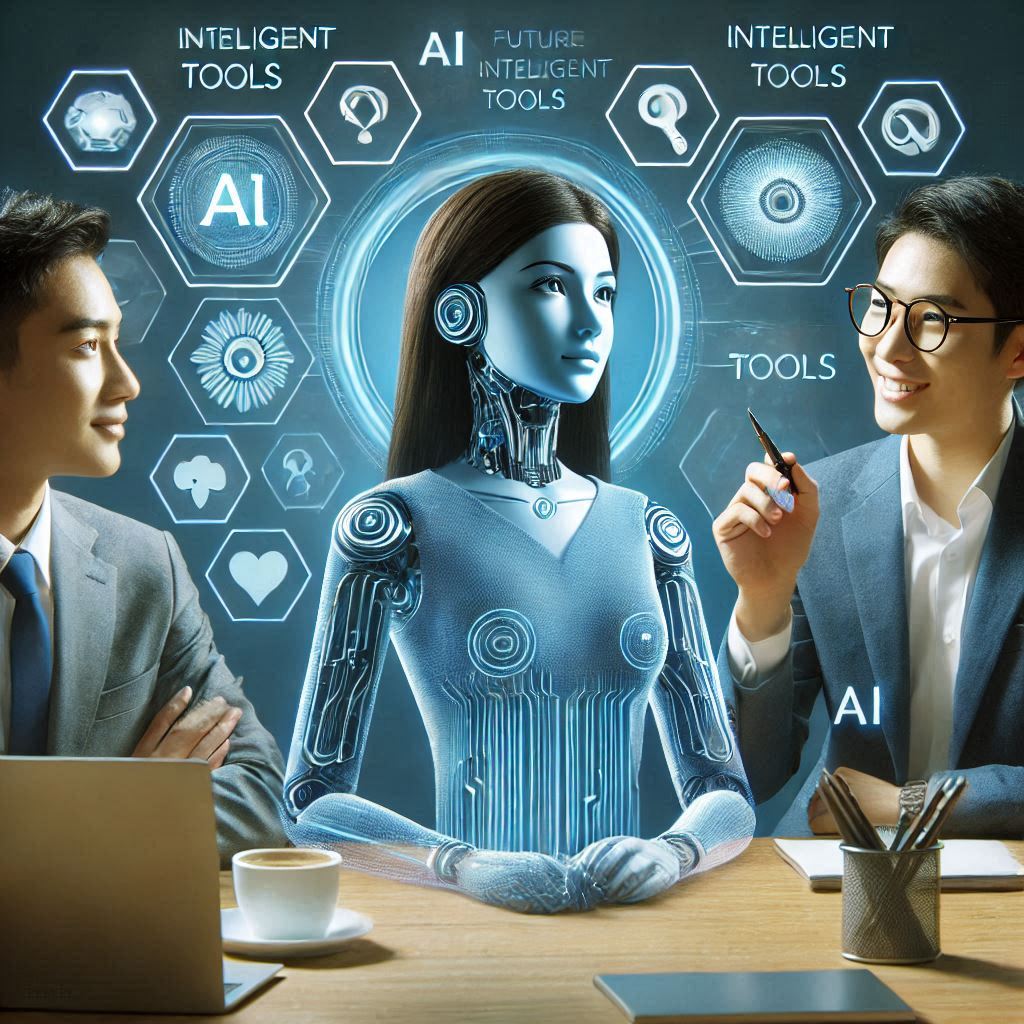AI Agents Explained: The Future of Intelligent Tools. Artificial Intelligence (AI) is evolving rapidly. A new wave of intelligent tools, known as AI agents, is changing how we interact with technology. These agents are designed to act autonomously, solve problems, and perform tasks, making them incredibly powerful for businesses and individuals.
This article dives into what AI agents are, how they work, and their potential to revolutionize industries.
AI Agents Explained The Future of Intelligent Tools
What Are AI Agents?
AI agents are advanced systems capable of making decisions and taking actions without constant human input. Unlike traditional AI systems that need instructions for every task, AI agents operate autonomously.
They are built to observe, decide, and act. They analyze data, learn from experiences, and adapt to new challenges.
How Do AI Agents Work?
AI agents rely on several technologies to function effectively:
- Machine Learning (ML):
They use ML to learn patterns, make predictions, and improve performance over time. - Natural Language Processing (NLP):
This helps them understand and generate human-like text, making interactions smoother. - Computer Vision:
AI agents can interpret images and videos, enabling tasks like facial recognition or analyzing photos. - Reinforcement Learning:
They learn through trial and error, constantly improving their ability to complete tasks. - Autonomy:
AI agents don’t need constant guidance. They can independently decide what action to take based on goals and available data.
Types of AI Agents
AI agents come in different forms, depending on their use case:
- Reactive Agents:
These respond to specific inputs but don’t store past experiences. For example, a chess-playing AI that focuses only on the current move. - Goal-Oriented Agents:
These work towards achieving a defined objective. For instance, a virtual assistant scheduling appointments based on your preferences. - Learning Agents:
These adapt over time by learning from their environment. Chatbots that get better at understanding user queries are a common example. - Collaborative Agents:
They work alongside humans or other AI systems, enhancing teamwork and efficiency.
Applications of AI Agents
AI agents have a broad range of applications. Here’s how they’re shaping different industries:
1. Healthcare
- AI agents assist doctors in diagnosing diseases.
- They analyze medical records and suggest personalized treatment plans.
- Chatbots answer patient queries and provide health tips.
2. Business and Finance
- Virtual assistants schedule meetings and manage emails.
- Financial AI agents detect fraud by analyzing transactions.
- They provide insights for better investment decisions.
3. Customer Support
- Chatbots powered by AI agents handle customer inquiries 24/7.
- They resolve common issues, reducing the need for human agents.
4. Education
- AI tutors provide personalized learning experiences.
- They adapt lessons to match a student’s pace and understanding.
5. Smart Homes and IoT
- AI agents control smart devices, like lights and thermostats.
- They optimize energy usage and enhance security.
6. Transportation
- Self-driving cars rely on AI agents to navigate roads.
- AI agents manage traffic flow in smart cities.
Advantages of AI Agents
- Efficiency:
AI agents handle repetitive tasks faster than humans. This saves time and resources. - 24/7 Availability:
Unlike humans, AI agents can work around the clock, improving productivity. - Personalization:
They tailor solutions based on individual needs, enhancing user experiences. - Cost-Effective:
Businesses save money by automating processes that usually require human labor. - Improved Decision-Making:
AI agents analyze large datasets and provide insights that aid in better decision-making.
Challenges and Limitations
- Data Dependency:
AI agents rely heavily on data. Poor data quality can lead to incorrect decisions. - Ethical Concerns:
The autonomy of AI agents raises questions about accountability and transparency. - Security Risks:
Hackers could exploit vulnerabilities in AI systems, leading to breaches. - Job Displacement:
Automation may replace human jobs, creating economic challenges. - Complexity:
Designing and maintaining AI agents requires advanced technical expertise.
The Future of AI Agents
The future of AI agents is promising. Here’s what to expect:
- More Advanced Learning:
AI agents will continue to learn and improve faster, becoming even more efficient. - Integration Across Industries:
Their applications will expand into areas like agriculture, space exploration, and more. - Enhanced Collaboration:
Future AI agents will work seamlessly with humans, making collaboration more effective. - Stronger Ethical Standards:
Governments and organizations are likely to implement stricter guidelines to ensure AI agents operate responsibly. - Widespread Accessibility:
AI agents will become more accessible to small businesses and individuals, democratizing their benefits.
Also Read – Mastering AI Communication Crafting Effective Prompts for Real World Applications
Why Are AI Agents Important?
AI agents represent the next step in artificial intelligence. They make technology smarter, more intuitive, and easier to use. For businesses, they offer a competitive edge by automating processes and improving decision-making. For individuals, they simplify daily tasks and provide personalized assistance.
Conclusion
AI agents are transforming the way we interact with technology. From healthcare to finance, their impact is undeniable. They are efficient, autonomous, and constantly evolving. While challenges exist, the benefits of AI agents far outweigh the risks.
As we move forward, understanding and embracing AI agents will be key to unlocking their full potential. Whether you’re a business owner or a tech enthusiast, now is the time to explore how AI agents can benefit you. The future of intelligent tools is here, and it’s driven by AI agents.



